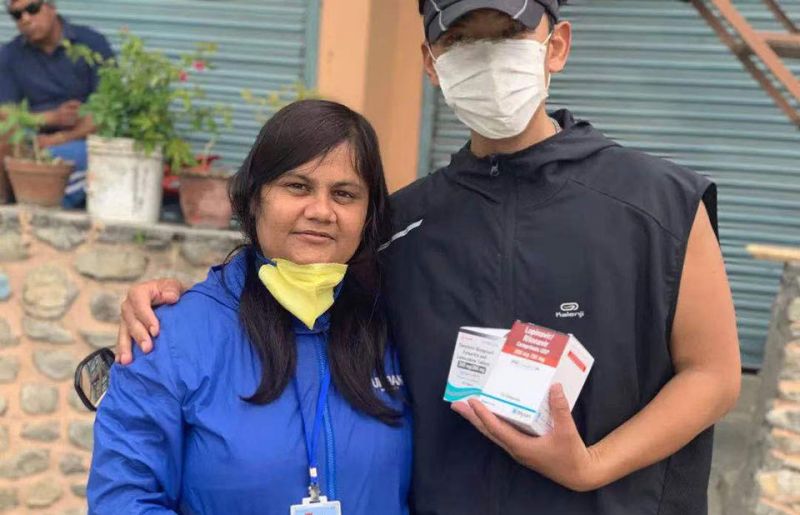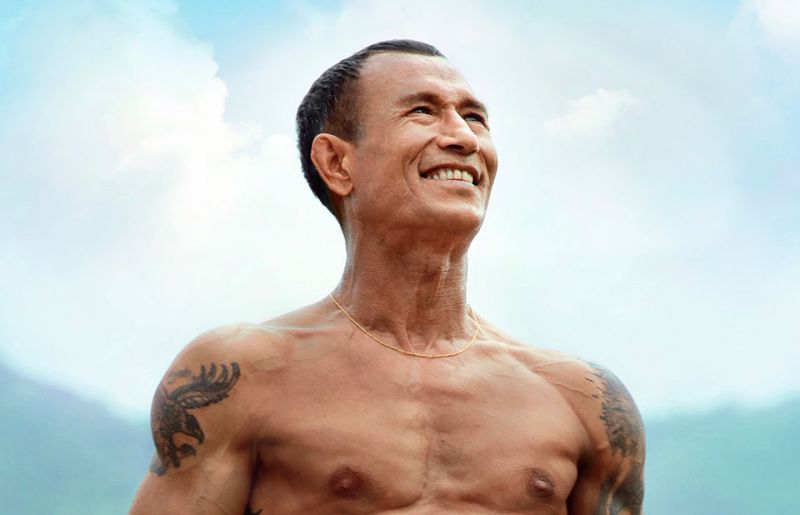On the day of China’s Lantern Festival, 8 February, Shen Ming was making sweet dumplings, the traditional festival delicacy, at his home in Wuhan in China’s Hubei Province. From time to time, he would raise his head to watch the local news on the television to get the latest on the COVID-19 outbreak.
His paid particular attention to the new traffic restriction measures. Unlike most people in the city, who stayed indoors all day because of the lockdown, Shen Ming needed to go out almost every day—he is a volunteer who is driving people living with HIV to pick up their medicines from hospitals during the outbreak.
Shen Ming had planned to drive someone to Jinyintan Hospital in the afternoon. Just enough time to have the sweet dumplings, he thought. As the water began to boil, his phone rang. A colleague from the Wuhan Lesbian, Gay, Bisexual and Transgender Center asked him if he could drive another two people to get their medicine right away. He said yes. “You see,” he said. “It will save me a lot of time because I can drive three people to the hospital in one go.”
He switched off the hob and put on a protective suit and mask. “Never mind the sweet dumplings. I can cook them later,” he said. “Besides, I can have a video call with my parents while I’m having the dumplings in the evening.”
A new year away from home
It was more than two weeks since Wuhan, the epicentre of the COVID-19 outbreak, was locked down. An uncomfortable silence hung over the city, which appeared deserted, in stark contrast to the energy of the city before the outbreak.
Shen Ming had had totally different new year plans. He had booked a flight to his home town in Zhejiang Province and had even bought some spicy local delicacies for his parents as new year gifts. “They are more accustomed to sweet food, but I want them to try something different,” he said.
Two days before his flight, Shen Ming got a text message from his boyfriend. “How are you?” the message read. “I got bad news: my father has been diagnosed with COVID-19. And my mother and I both have a high fever too. We are all on the way to the hospital and will stay there if there are beds for us.”
Shen Ming offered his condolescences to his boyfriend, and the next day went to see his doctor. He was relieved to be told that he was not infected, but was advised to stay in Wuhan for observation—he never thought that the coronavirus would be the reason for his first new year away from his family.
So, you are also HIV-positive, like us?
His first passenger was from Shanghai. Wuhan was put under lockdown just as he was about to leave. Soon, he found his HIV medicine running out. “If the medicine of people living with HIV is disrupted, their health will suffer. It might be inaccurate, but I can feel their fear, anxiety and dispair,” Shen Ming said.
Thanks to a directive from China’s National Center for AIDS/STD Control and Prevention, people living with HIV can receive medicine refills wherever they are. All they need is a letter from their service provider. However, they faced a challenge, as taxis and public transport services were stopped during the lockdown.
A survey jointly conducted by UNAIDS and the BaiHuaLin alliance of people living with HIV, a community-based organization in Beijing, shows that nearly 65% of the respondents in Hubei Province had difficulty getting their medicines during the lockdown. With most medical staff concentrating on COVID-19, community-based organization such as the Wuhan Lesbian, Gay, Bisexual and Transgender Center asked for volunteers like Shen Ming to transport people living with HIV to pick up their medicines.
On his first drive, Shen Ming put on three face masks and rolled down the car window to reduce the possibility of getting infected. His trip was to the same hospital that looked after people affected by COVID-19. He was nervous when arriving at the hospital, but to his relief the HIV clinic and the COVID-19 clinic were far apart. The Wuhan Lesbian, Gay, Bisexual and Transgender Center gave him a protective suit after learning that he didn’t have adequate protective equipment, and he eventually became more relaxed.
He would walk to the clinic with his passengers and wait there until they got their medicine. Afterwards, they would have a chat. “So, you are also HIV-positive, like us?” almost all of them would ask Shen Ming. He isn’t. “It doesn’t matter,” he said. “AIDS is just a chronic disease. The care for people living with HIV goes beyond the community of people living with HIV.”
“I will probably stay here”
It was late when he got back home after driving the three people to the hospital on the day of the Lantern Festival. Hungry, he turned on the hob and cooked noodles. This is the first time that Shen Ming hadn’t had sweet dumplings on the Lantern Festival, but he was happy because he got to meet his boyfriend, albeit briefly.
“I will continue my volunteering work until they don’t need me. It would be best if I’m not needed,” he said with a smile on his face.“I will probably stay in this city. I’ll buy a house when the epidemic is over, and build a home here.”




